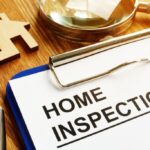In Southern California’s dynamic real estate market, having a thorough home inspection is more crucial than ever. Home inspectors Orange County professionals play a vital role in helping buyers and homeowners understand the actual condition of their properties. This comprehensive guide will walk you through everything you need to know about home inspections in this region, from what to expect during the process to why they’re essential for your peace of mind.
Understanding the Role of Home Inspectors
What Does a Home Inspector Do?
When buying or selling a property, home inspectors Orange County experts are your unbiased third-party evaluators. They meticulously examine every accessible home area, from the foundation to the roof, ensuring nothing escapes their trained eyes. Their primary goal is to provide a detailed assessment of the property’s condition, highlighting current and potential future concerns.
The Importance of Local Expertise
Orange County’s unique climate and geological conditions present specific challenges for homeowners. From the coastal areas dealing with salt air corrosion to inland properties facing extreme heat, local inspectors understand these regional factors and know exactly what to look for during their evaluations.
The Comprehensive Inspection Process
Initial Property Overview
The inspection begins with a thorough exterior examination. Home inspectors in Orange County professionals start by assessing:
- Roof condition and materials
- External wall integrity
- Foundation status
- Drainage systems
- Landscaping impact on the structure
- Window and door functionality
- Garage door systems
Interior Evaluation
Moving inside, inspectors conduct detailed examinations of:
Structural Elements
- Wall Integrity
- Ceiling condition
- Floor stability
- Support beam placement
- Attic structure
- Crawl space assessment
Essential Systems
- Electrical systems and wiring
- Plumbing infrastructure
- HVAC efficiency
- Water heater functionality
- Ventilation systems
- Insulation quality
Living Spaces
- Kitchen Appliances
- Bathroom fixtures
- Window operations
- Door Functionality
- Built-in features
- Storage spaces
Advanced Inspection Technologies
Modern Tools of the Trade
Today’s home inspectors in Orange County utilize sophisticated equipment to provide more accurate assessments:
Thermal Imaging Cameras
- Detect hidden water leaks
- Identify insulation gaps
- Spot electrical hotspots
- Find energy loss areas
Moisture Meters
- Measure humidity levels
- Detect water damage
- Assess material dampness
- Monitor potential mold conditions
Electronic Gas Detectors
- Check for natural gas leaks
- Monitor carbon monoxide levels
- Assess air quality
- Identify potential hazards
Common Issues in Orange County Homes
Structural Concerns
Foundation Problems
- Soil settlement issues
- Earthquake damage
- Crack formation
- Water damage impact
Roof Challenges
- Sun damage
- Water penetration
- Tile deterioration
- Flashing issues
Environmental Factors
Climate-Related Issues
- Heat damage to materials
- Coastal air corrosion
- UV ray impact
- Moisture-related problems
Natural Disaster Preparedness
- Earthquake readiness
- Fire safety measures
- Flood protection
- Wind damage resistance
Seasonal Inspection Considerations
Spring Inspections
- Check for winter damage
- Assess drainage systems
- Examine roof condition
- Inspect ventilation
Summer Evaluations
- Test cooling systems
- Check insulation efficiency
- Assess sun damage
- Monitor attic ventilation
Fall Assessments
- Prepare for winter
- Check heating systems
- Inspect weatherproofing
- Examine drainage
Winter Examinations
- Monitor water intrusion
- Check heating efficiency
- Assess insulation
- Inspect weather sealing
Understanding Your Inspection Report
Report Components
Overview Section
- Property details
- Inspection scope
- Weather conditions
- General observations
Detailed Findings
- System-by-system analysis
- Photographic evidence
- condition ratings
- Repair recommendations
Priority Issues
- Safety concerns
- Major defects
- Immediate repair needs
- Future maintenance requirements
Making the Most of Your Inspection
Before the Inspection
Preparation Steps
- Clear access to all areas
- Ensure utilities are on
- Remove stored items
- Secure pets
Documentation
- Gather maintenance records
- Note known issues
- Prepare questions
- Collect warranty information
During the Inspection
Active Participation
- Be present if possible
- Ask questions
- Take notes
- Understand findings
Learning Opportunities
- Understand maintenance needs
- Learn about systems
- Identify potential issues
- Get maintenance tips
Maintenance Following Inspection
Immediate Actions
Priority Repairs
- Address safety issues
- Fix major defects
- Resolve code violations
- Correct structural problems
Preventive Measures
- Implement recommendations
- Schedule maintenance
- Plan upgrades
- Budget for repairs
Long-term Planning
Maintenance Schedule
- Regular checks
- Seasonal tasks
- Annual inspections
- System updates
Budget Planning
- Repair costs
- Upgrade expenses
- Maintenance funds
- Emergency savings
Special Considerations for Different Property Types
Single-Family Homes
- Complete structure evaluation
- System integration
- Property Boundaries
- Outdoor features
Condominiums
- Limited common areas
- Shared systems
- Association responsibilities
- Interior focus
Historic Properties
- Original features
- Previous modifications
- Material authenticity
- Preservation requirements
Energy Efficiency Evaluation
Current Status
- Insulation effectiveness
- Window efficiency
- HVAC performance
- Appliance ratings
Improvement Opportunities
- Upgrade options
- Cost savings
- Environmental impact
- Rebate programs
Safety Considerations
Essential Safety Features
- Smoke detectors
- Carbon monoxide monitors
- Fire extinguishers
- Emergency exits
Security Elements
- Door Security
- Window locks
- Exterior lighting
- Access points
Environmental Concerns
Indoor Air Quality
- Ventilation assessment
- Pollutant detection
- Mold inspection
- Allergen identification
Hazardous Materials
- Asbestos potential
- Lead paint presence
- Chemical storage
- Waste management
Conclusion
Home inspections are a crucial step in ensuring the safety and integrity of your property investment. Orange County’s unique environment makes these evaluations even more significant due to specific regional challenges and conditions. By understanding the inspection process and working with qualified professionals, you can make informed decisions about your property and maintain its value over time.
Remember that while this guide provides comprehensive information about home inspections, each property is unique and requires individual attention. Regular inspections and proper maintenance based on professional recommendations will help ensure your home remains safe and sound for years.
Whether buying, selling, or maintaining a property, investing in thorough home inspections is one of the wisest decisions you can make, it provides peace of mind, helps prevent costly surprises, and ensures your home remains a haven for you and your family.






